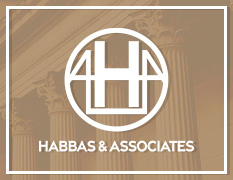It’s estimated that 94% of all car accidents are caused by human error. Whether due to speeding, drunk driving, or another form of negligence, car crashes take thousands of lives every year – making it imperative for car companies to use technology in a way that lowers car accident rates.
This is precisely why many auto makers are now developing ‘self-driving” vehicles. Although they have yet to develop a fully self-driving or automated car that consumers will trust to take them from point A to point B, companies like Uber and Tesla have invested millions in automated alternatives to the traditional car.
While these companies claim that automation will only improve safety standards by cutting out human error, however, there’s a deep legal debate at the heart of this issue: Namely, who can be held accountable for the actions of a self-driving vehicle? As many legal scholars have argued, the shift to automation foretells a greater legal shift from car accident fault to product liability.
Understanding Product Liability and Car Automation
In most states, car accidents are considered to be a matter of personal liability. Through “negligence,” a driver or operator can accidentally or intentionally impact the lives of others, by causing a fatal accident. Here in the state of California, car owners and operators who are primarily responsible for a crash may be held civilly liable for damages, including medical expenses, pain and suffering, time off work, and other costs.
With the rise of car automation, the liability for accidents will be more centered on product liability – the doctrine that a manufacturer is responsible for maintaining and creating safe products. Currently, Uber’s self-driving cars are assisted by human “operators” or “pilots,” and Tesla’s built in Autopilot system is also meant as a last-resort for human drivers.
However, in 2016, a Florida driver was killed after a Tesla car operating in Autopilot crashed into a tractor-trailer on the freeway. There have been many subsequent crashes that involved automated cars, particularly from Tesla and Uber. In all of those cases, the legal discussion has centered on defective product law. After all, it was a computer and an operating system that ultimately caused the crash.
Accountability for Automation Accidents
Depending on the circumstances for a self-driving car crash, the automobile manufacturer and seller may bear sole responsibility for another driver’s injuries, or for injuries suffered by the driving “pilot.” Of course, there are plenty of other parties that could be involved in such a car crash. Like any other accident, a self-driving car crash may involve fast-moving vehicles, pedestrians, unsafe road conditions, and weather hazards.
Here are just a few of the parties that could be responsible in a self-driving car accident:
- The engineers who produced the operating system
- The automobile company
- The marketing agency for the car company
- Another driver on the road
- The self-driving car’s “pilot”
- A negligent or inattentive pedestrian
- A motorcycle rider
- The city or municipal government
- A local property owner
Skilled at Discovering the Details
The law is changing rapidly as technology continues to redefine the contours of our world. That means today’s attorneys will need to fully understand the principles behind our laws – and learn how to apply them in new situations as they arise.
At Habbas & Associates, our team can apply almost two centuries of dedicated legal experience to your self-driving car crash case. If you were injured in a self-driving car accident, we’ll investigate the matter fully and help you understand your legal options. Compensation is a right whenever negligence occurs, and we’ll fight for your rights all the way through to trial.
Call (888) 387-4053 today for more information about our legal services!


